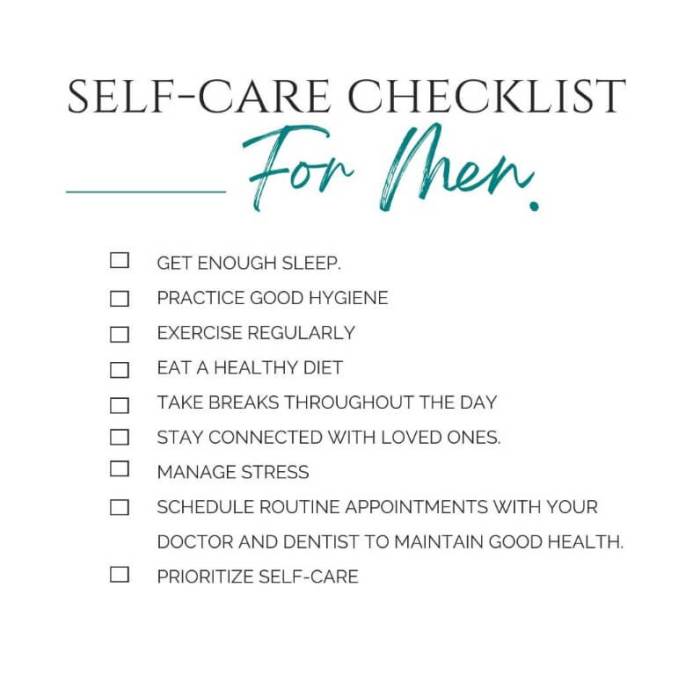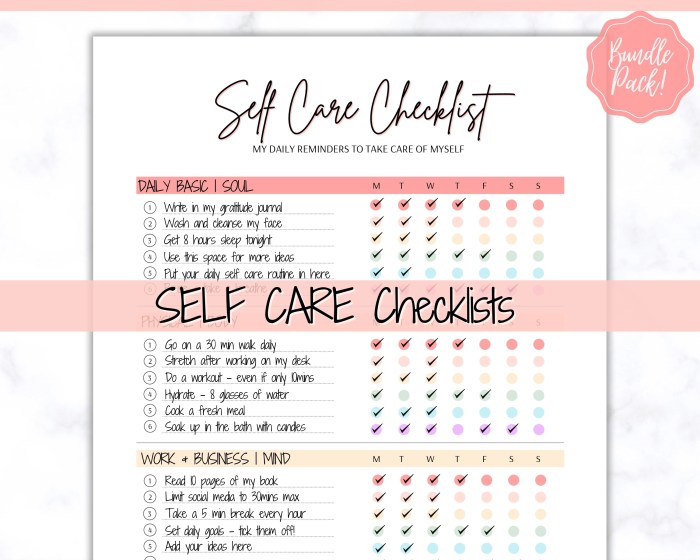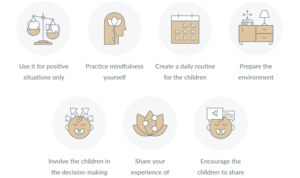Self-Care Routine Ideas: Dive into a world of morning rituals, mindful practices, and physical well-being activities that will rejuvenate your mind and body. Get ready to explore the ultimate guide to self-care!
Self-Care Routine Ideas

Starting your day with a refreshing self-care routine can set a positive tone for the rest of the day. Here are some morning self-care activities to consider:
Morning Self-Care Activities:
- Begin the day with a glass of water to hydrate your body.
- Practice some gentle stretching or yoga to wake up your muscles.
- Take a few moments to meditate or practice deep breathing exercises.
- Enjoy a nutritious breakfast to fuel your body and mind.
- Set intentions or affirmations for the day ahead.
Journaling in Your Self-Care Routine:
Journaling can be a powerful tool for self-reflection and emotional release. Consider incorporating journaling into your self-care routine by:
- Writing down your thoughts and feelings each morning or evening.
- Keeping a gratitude journal to focus on the positive aspects of your life.
- Setting aside time to journal when you need to process emotions or experiences.
- Using journal prompts to spark creativity and self-discovery.
Mindfulness and Meditation Practices:
Including mindfulness or meditation practices in your self-care routine can help reduce stress and improve mental clarity. Benefits of these practices include:
- Increased focus and concentration.
- Reduced anxiety and negative thinking patterns.
- Enhanced self-awareness and emotional regulation.
- Improved overall sense of well-being and contentment.
Self-Care Activities for Physical Well-Being:
Physical self-care is essential for overall health and vitality. Consider incorporating these activities into your routine:
- Regular exercise, such as walking, running, or yoga.
- Healthy eating habits, including balanced meals and plenty of water.
- Getting enough sleep to allow your body to rest and recharge.
- Spending time outdoors in nature for fresh air and movement.
Relaxation Techniques
In today’s fast-paced world, it’s essential to take some time to relax and unwind. Here are some relaxation techniques that can help you de-stress and rejuvenate.
Deep Breathing Exercises
- Deep breathing exercises involve taking slow, deep breaths to help calm the mind and body.
- Find a quiet place to sit or lie down, close your eyes, and focus on your breathing.
- Inhale deeply through your nose, hold for a few seconds, and exhale slowly through your mouth.
- Repeat this process several times, feeling the tension melt away with each breath.
Creating a Calming Environment, Self-Care Routine Ideas
- Set up a space in your home that is dedicated to relaxation, free from distractions.
- Add soothing elements like soft lighting, calming scents, comfortable pillows, and blankets.
- Play relaxing music or nature sounds to create a peaceful ambiance.
- Engage in activities like reading, meditation, or gentle stretching in this space to unwind.
Setting Boundaries for Work-Life Balance
- Establish clear boundaries between work and personal time to prevent burnout and maintain mental well-being.
- Communicate your limits to colleagues, supervisors, and family members to ensure they respect your time.
- Schedule regular breaks throughout the day to recharge and avoid overworking yourself.
- Turn off notifications during non-work hours to disconnect and focus on relaxation.
Taking Short Breaks Throughout the Day
- Short breaks can help prevent mental fatigue and boost productivity.
- Take a few minutes to step away from your tasks, stretch, or go for a short walk.
- Use techniques like the Pomodoro method to work in focused intervals with short breaks in between.
- Allow yourself time to relax and recharge so you can return to your tasks with renewed energy and focus.
Mental Health Support: Self-Care Routine Ideas

Self-care plays a crucial role in maintaining good mental health by providing individuals with the tools and strategies to cope with stress, anxiety, and other emotional challenges. It involves taking intentional steps to prioritize one’s well-being and engage in activities that promote relaxation and self-reflection.
The Role of Self-Reflection
Self-reflection practices are essential for emotional well-being as they allow individuals to gain insight into their thoughts, emotions, and behaviors. By taking the time to reflect on their experiences and feelings, people can identify patterns, triggers, and areas for personal growth. This process can lead to increased self-awareness, improved emotional regulation, and enhanced resilience.
- Journaling: Writing down thoughts and feelings can help individuals process emotions and gain clarity on their mental state.
- Mindfulness meditation: Engaging in mindfulness practices can promote present-moment awareness and reduce rumination and negative thinking.
- Therapeutic activities: Engaging in creative outlets like art, music, or dance can provide a cathartic release and foster self-expression.
Seeking Professional Help
It is important to recognize when self-care practices are not enough to address mental health concerns and seek professional help when needed. Mental health professionals, such as therapists, counselors, and psychiatrists, can provide support, guidance, and evidence-based interventions to help individuals navigate their emotional challenges effectively.
- Therapy sessions: Attending regular therapy sessions can offer a safe space to explore emotions, gain coping skills, and work through underlying issues.
- Medication management: In some cases, medication prescribed by a psychiatrist may be necessary to manage symptoms of mental health conditions.
- Support groups: Joining support groups can provide individuals with a sense of community, validation, and shared experiences.
Self-Care Activities for Stress and Anxiety Reduction
Engaging in specific self-care activities can help reduce stress and anxiety levels, promoting overall mental well-being.
- Physical exercise: Regular exercise can help release endorphins, reduce stress hormones, and improve mood.
- Breathing exercises: Deep breathing techniques can promote relaxation, calm the nervous system, and reduce anxiety symptoms.
- Spending time in nature: Connecting with nature can have a calming effect on the mind and body, reducing stress and promoting mental clarity.







